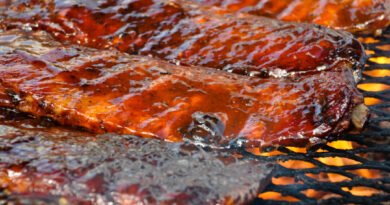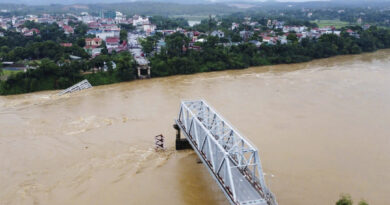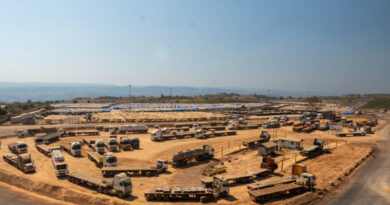New Legislation Passed by South Korean Parliament to Investigate the President
President Yoon Suk Yeol has expressed regret for declaring martial law on Dec. 3 but has not resigned from his position.
The South Korean parliament approved a bill on Dec. 10 to appoint a special counsel to investigate President Yoon Suk Yeol’s move to implement martial law.
Among 287 parliamentarians present at the session, 209 voted in favor of the bill, while 64 opposed it, and 14 abstained, according to the Yonhap News Agency in Seoul.
The main opposition Democratic Party pushed for the special counsel inquiry, arguing that public prosecutors may not conduct a comprehensive investigation of Yoon, given his previous role as prosecutor-general.
The Justice Ministry has restricted Yoon and eight others from leaving the country while authorities examine whether their actions amount to rebellion.
“This declaration was made out of my sense of urgency as the president, who bears the ultimate responsibility for state affairs,” Yoon stated on Saturday. “However, I caused anxiety and inconvenience to the citizens in the process. I feel deeply apologetic and sincerely apologize to the citizens who were greatly alarmed.”
Lee Yang-soo, head of the PPP task force formed this week to strategize Yoon’s exit, disclosed that his team suggested the president step down in February or March of next year, followed by a prompt election two months later.
If Yoon leaves office before his five-year term ends in May 2027, the constitution mandates an election within 60 days of his departure.
“We’ve not yet reached a conclusion party-wide and will have another meeting with all our members of parliament in the afternoon to discuss that plan,” Lee mentioned.
Detailed accounts of the brief martial law declaration on Dec. 3 have begun to surface.
Kwak Jong-geun, the Army Special Warfare Command commander, testified to a parliamentary committee that he received several calls from Yoon during the events that followed the declaration.
“He instructed me to forcefully enter and apprehend the individuals inside,” Kwak recounted, referring to parliament members convening in the main chamber to vote on rescinding the martial law order.
Kwak chose not to carry out Yoon’s directive, and the president lifted martial law six hours after the parliamentary vote.
The special forces commander’s testimony contradicted earlier accounts by military personnel, who claimed that then-defense minister Kim Yong-hyun issued the order to evacuate lawmakers from the parliament chamber.
Kim has since resigned and been arrested, accused of advising Yoon to declare martial law and deploying troops to prevent lawmakers from voting.
Eventually, lawmakers gained access to a parliament chamber and unanimously rejected Yoon’s declaration, compelling the Cabinet to revoke martial law before dawn on Dec. 4.
In a statement, Kim assumed full responsibility for the imposition of martial law, appealing for leniency toward the participating soldiers.
Since assuming office in 2022 for a single five-year term, Yoon, a conservative, has clashed with liberal opponents controlling the country’s parliament.
Liberal lawmakers have pushed for the impeachment of Yoon’s top officials and launched an assertive political campaign against him.
Yoon described the parliament as a “den of criminals” impeding state affairs when he imposed martial law, vowing to eradicate “shameless North Korea followers and anti-state elements.”
The Associated Press and Reuters contributed to this report.





